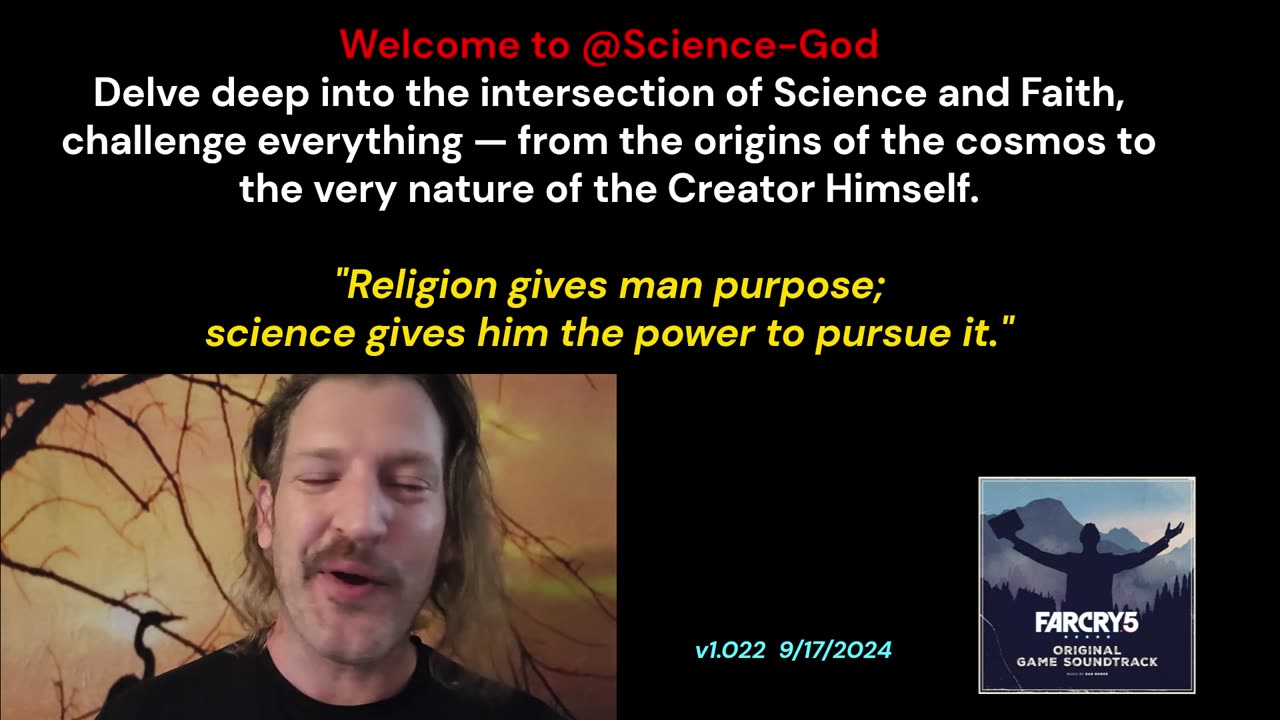Premium Only Content

Divine Hiddenness and Religious Confusion Arguments Against God
Divine Hiddenness
There are different ways to frame this argument, but let’s focus on one common version:
Premise 1: If a perfectly loving God exists, then He would always be open to a personal relationship with any person.
The idea is that love is naturally relational—
it’s not just about being kind, but about wanting to connect, wanting to be with the other person, simply because you care about them.
So, a perfectly loving God would always be open to having a personal relationship with every one of His creations.
Premise 2: If God is always open to a relationship with anyone, there shouldn’t be cases where people genuinely don’t believe in God, even though they’re open to it.
This is what’s called “non-resistant non-belief.”
These are people who don’t believe in God, but not because they’re stubborn or rebellious.
They’re willing to believe—
they just don’t see enough reason or evidence to think He exists.
The logic is simple: for a relationship to exist, you at least need to acknowledge that the other party exists.
So, if God truly wanted a relationship with these people, He would make sure they knew He was real.
Premise 3: But, there are cases of non-resistant non-belief.Many people are open to the idea of God but just don’t feel like there’s enough evidence for Him.
They aren’t resisting Him—
He just doesn’t seem to be there.
So, the conclusion follows: If a perfectly loving God exists, He would make Himself known to everyone who’s open to a relationship with Him.
But since there are non-resistant non-believers, it seems that a perfectly loving God doesn’t exist.
Of course, there are responses to this argument. Some say that God has good reasons for staying hidden.
Others question whether there really are people who are totally non-resistant in their unbelief.
But this argument presents a real challenge, especially for people who feel like God is more absent in their lives than present.
A lot of people say things like, “I just don’t feel Him” or “I haven’t seen any evidence.”
It’s not always about rejecting God—
sometimes it’s more about feeling like He’s just... not there.
And that’s why this argument resonates with so many people, perhaps even more than the classic Problem of Evil.
It’s a modern challenge to the idea of a loving God that continues to spark debate.
Religious Confusion
Now, let’s talk about the Religious Confusion or Religious Diversity argument.
The basic idea is this: If God exists and creates humans, you’d expect Him to make sure that we all know how to properly relate to Him.
After all, having a relationship with God is seen as hugely important by most believers.
And getting it wrong? Well, that’s often said to have pretty serious, even eternal, consequences.
So, if God exists, we should expect Him to clearly reveal what He’s like, how we’re supposed to live, and how we can be in communion with Him.
This would include letting us know the right way to worship and connect with Him.
But here’s the problem: the world is full of religious confusion.
There are thousands of religions, and they all have different and often conflicting ideas about God’s existence, His nature, and what He wants from us.
And these aren’t just small disagreements—
they’re about fundamental things like who God is and how we’re supposed to relate to Him.
On top of that, some divine revelations seem strange or morally questionable.
Think about religious texts that talk about God commanding violent acts or collective punishment.
If God is trying to guide us, these kinds of messages can seem confusing or even troubling.
So, the argument goes: If God exists and wants us to know Him and live according to His will, He hasn’t done a great job of communicating that.
On the other hand, if there is no God, this religious confusion makes more sense.
Different religions are more likely the result of social, cultural, and historical factors rather than clear divine guidance.
Some might argue that there are common threads across religions—
like the idea of the sacred or a belief in something supernatural—
that suggest there’s something divine.
But this doesn’t really solve the problem of why God hasn’t made His will more clear, especially when so much is at stake.
To make this clearer, think of a parent with children.
Imagine the kids are arguing about who gets to play with a toy because they each believe the parent told them something different.
Now, if the parent could easily step in and clarify, but doesn’t, we’d question whether that parent is being responsible.
Similarly, if God exists and could easily clear up how to relate to Him, but doesn’t, it raises questions about His goodness or ability to communicate.
This level of confusion is surprising under theism but expected under atheism, where religions are seen as human-made.
#sciencegod
#sunsetguitar
#oblivioncocoon
#coonfire
#sunsetpiano
-
 LIVE
LIVE
Grant Stinchfield
47 minutes agoPfizer Marketing Data Reveals 1223 Deaths in Just 10 Weeks Following COVID Vax Rollout
228 watching -
 LIVE
LIVE
The Shannon Joy Show
3 hours ago🔥🔥How’d America End up UPSIDE SIDE DOWN in China? And What Can We Do About it?🔥🔥
1,988 watching -
 DVR
DVR
Bannons War Room
18 hours agoWarRoom Live
219K43 -
 2:58:51
2:58:51
Wendy Bell Radio
7 hours agoCHECKMATE
87.6K64 -
 56:32
56:32
VSiNLive
2 hours ago $0.85 earnedA Numbers Game with Gill Alexander | Hour 1
15.2K -
 2:06:29
2:06:29
Matt Kohrs
12 hours agoPumping To New Highs, Memecoin Mania & The Week Ahead || The MK Show
28.5K2 -
 42:05
42:05
BonginoReport
6 hours agoPothole Pete Blames Plane Crash in Canada on Trump (Ep.142) - 02/18/2025
89.8K198 -
 1:13:40
1:13:40
Graham Allen
5 hours agoDOGE Is Going After The IRS!! Mass Firing Soon!! + ANOTHER Plane Crash! We Are Not Safe…
86K37 -
 56:28
56:28
Randi Hipper
2 hours agoArgentina's Meme Coin Disaster: Inside the LIBRA Crash
26.1K1 -
 DVR
DVR
Chicks On The Right
6 hours agoCrazy plane crash, crazy lib protests, and Deborah Birx can suck it
60.7K6